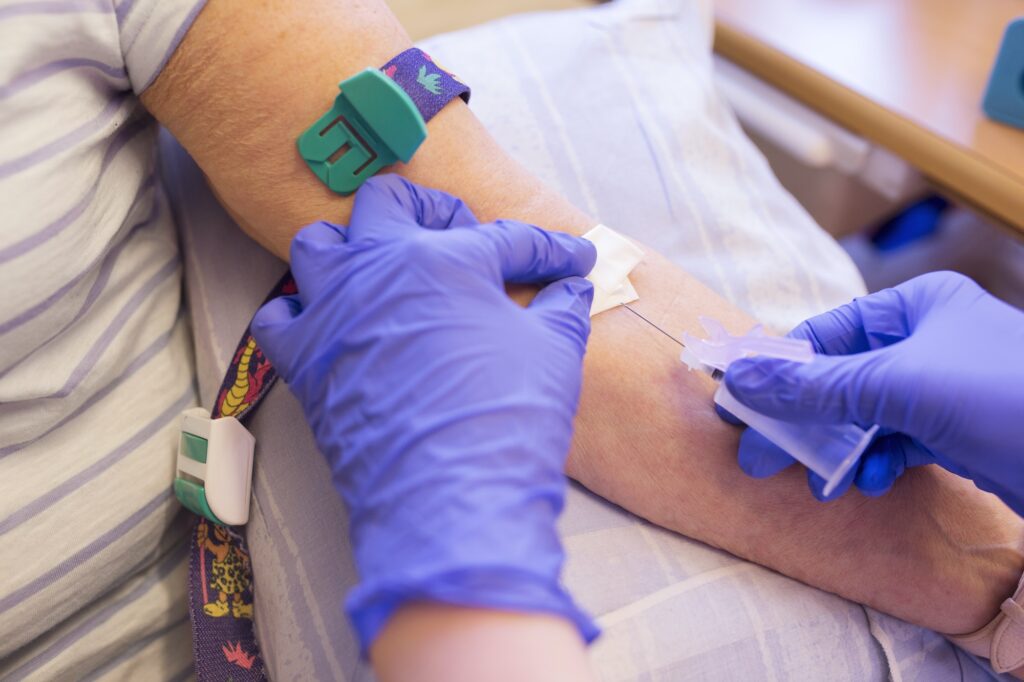Infertility affects men and women equally. There is a common assumption that infertility is a problem caused only by the female partner. In reality, about half of all infertility cases are due to male factor infertility. Therefore, when couples who are having difficulty conceiving begin treatment, male infertility should be tested.
Today, technologies exist that can identify the causes of male infertility. Thanks to male infertility specialists and andrology laboratories, tests and analyses are conducted more easily and accurately.
Every day, we successfully identify more and more causes of male infertility. As a result, we regularly develop customized treatment plans that lead to successful outcomes.

What Are the Causes of Male-Related Infertility?
Some men may have no symptoms of infertility, while others may have mild to moderate symptoms. Therefore, it is important to consult a specialist as soon as possible to identify the problem and find a solution for your infertility. Common causes of male infertility include:
- Erectile dysfunction (impotence)
- Ejaculation problems (no sperm or premature ejaculation)
- Azoospermia: absence of sperm due to physical blockage in the testicular ducts
- Varicocele: the formation of varicose veins on the testes
- Physical trauma to the testes
- Undescended testes
- Chemotherapy due to cancer
- Hormonal imbalances
- Age-related infertility
- Genetic anomalies
- Obesity
- Poor nutrition
- Stress
- Sexually transmitted diseases
- Cigarette use
- Recreational/drug use
What Are the Tests for Male Infertility?
Our laboratory has the experience and knowledge to quickly detect all possible causes of male factor infertility.
The male infertility evaluation consists of a detailed review of the male partner’s medical history, a physical examination by a urologist if necessary, and a Semen Analysis / Sperm test. Since male factor infertility affects half of all infertility cases, the analysis of the semen sample provides critical information for treating male infertility.

Semen analysis is performed shortly after the initial consultation.
After the semen sample is collected through masturbation in our IVF sample collection rooms, our laboratory staff performs the following microscopic analyses:
Volume
This indicates the amount of semen produced (in milliliters). Low volume may suggest blockage or dysfunction in the seminal vesicles (seminal sacs) or prostate. The volume should be above 2 ml.
Motility (Sperm Movement)
This shows the amount of sperm in motion. This parameter is critical for sperm’s ability to meet the egg in the fallopian tube. Typically, at least 50% of sperm should be moving.
Morphology (Sperm Shape)
This is a parameter related to the shape of sperm. Although the majority of sperm may have abnormal shapes, when more than 50% of sperm are abnormal, male fertility is affected.
Concentration
This indicates how many million sperm cells are present per milliliter of semen. A low sperm count may indicate obstruction in the ejaculatory path or that the testes are not producing sperm properly.
Appearance
The color of sperm can indicate the presence of blood or side effects from medication use.
Male Hormone Test
In some cases, we perform a blood test to check for hormonal imbalances or genetic disorders. These causes are less common. Therefore, unless there are underlying factors, this test is not routinely performed.

What Are the Treatments for Male Infertility?
At our clinic, we determine the diagnosis of male infertility based on comprehensive fertility testing and analysis.
When a condition that may hinder pregnancy is detected in the semen analysis, we offer various treatment options, including the ones listed below:
Insemination (IUI)
This first option involves placing sperm into the woman’s uterus during her ovulation period (via a thin catheter), which can be done without the need for an operating room.
In Vitro Fertilization (IVF / ICSI)
IVF is the process of combining the woman’s egg with the man’s sperm in a laboratory dish. “In vitro” means “outside the body.” After egg retrieval and fertilization, embryos are placed into the woman’s uterus after 3 to 5 days.
ICSI is the injection of a single healthy sperm into an egg to assist fertilization.
Varicocele Surgery
Since varicocele rarely causes symptoms, men are often unaware of this issue until it creates a fertility problem. Through surgical treatment, blood flow is directed to normal (healthy) veins. The surgery is done on an outpatient basis and under local anesthesia.
Testicular Biopsy
If there is no sperm in the semen analysis, a small tissue sample can be removed from the testes for analysis. If sperm are found, they can be used in IVF or ICSI treatment.
Hormonal Therapy
If sperm production is disrupted due to hormonal imbalances, hormone therapy may be a suitable option to treat the problem.
Artificial Semen / Sperm Donor
If a man has no sperm production due to azoospermia, sperm donation is another possible option. If sperm cannot be retrieved from the man’s body, a sperm donor may be an alternative.

 EN
EN TR
TR
